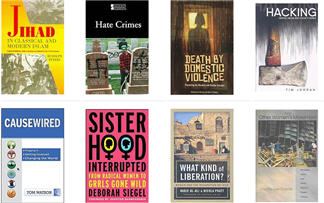The second guest writer of the How I Write series is Dr. Katherine Pancak, Professor of Finance and Real Estate, the author of Connecticut Real Estate: Practice and Law, and the Consulting Editor of Real Estate Fundamentals. This event in the series will focus on effective day-to-day writing in the workplace, focusing on how to write in a style that is easy to read and understand. The flier (http://www.stamford.uconn.edu/HowIWrite2.pdf) provides more info. I hope you can attend this event on Tuesday, March 24, from 1-2 p.m. in room 134. Lunch will be provided. How I Write: Conversations with Writers is a new interdisciplinary series we launched at our campus this semester. The series will include guest writers from all disciplines. Through this series, we hope to foster an open dialogue between teachers of writing, experienced writers, and students about writing and research. The series is funded by the Aetna Chair in Writing in Storrs.
Monthly Archives: March 2009
New Blog from The Dodd Research Center (Storrs)
The Dodd Research Center has announce a new webblog: http://doddcenter.wordpress.com.
The blog, known as “Fresh Pickin’s”, will feature new acquisitions, unique visual and textual documents from the collections, highlights of digital collections and event announcements.
New Books @ Stamford

Newest arrivals. Come by and check out our display table and grab something good to read. Check out our Worldcat.org :New Books@Stamford list!
Library Website Problem Today ~3/3/09
The Library website is not loading right now. You’ll notice that when loading the website in your browser, you can see a “waiting for alert.uconn.edu” message in the browser status bar.
We’ve notified UITS and multiple departments on campus are having the same problem. There is no resolution time yet for this issue.
We apologize for the inconvienence.
eBook of the Month
Check out the NetLibrary ebook selection of the Month for March.
In Two Billion Cars, transportation experts Daniel Sperling and Deborah Gordon provide a concise history of America’s love affair with cars and an overview of the global oil and auto industries. America is still the leading emissions culprit, and what is especially worrying is that developing nations are becoming car-centric cultures as well. The authors explain how we arrived in this dangerous state, and also what we can do about it. Sperling and Gordon expose the roots of the problem–the resistant auto-industry, dysfunctional oil markets, short-sighted government policies, and unmotivated consumers. They zero in on reforming our gas-guzzling culture, expanding the search for low-carbon fuels, environment-friendly innovations in transportation planning, and more. Promising advances in both transportation technology and fuel efficiency together with shifts in travel behavior, they suggest, offer us a realistic way out of our predicament.
Stamford Campus Closed Today ~March 2nd
Due to inclement weather, all classes are canceled and the Stamford Campus will be CLOSED today, Monday March 2nd. Classes will resume tomorrow morning, Tuesday March 3rd, as scheduled.
